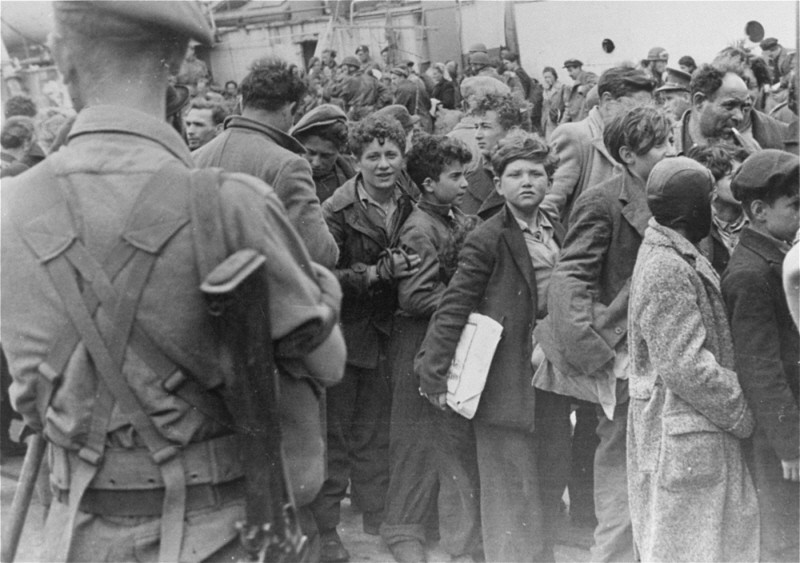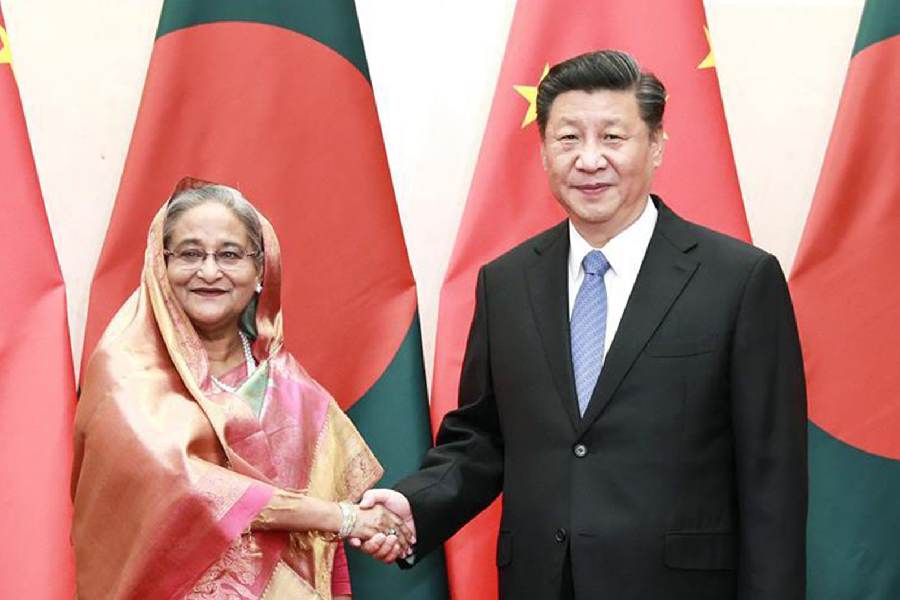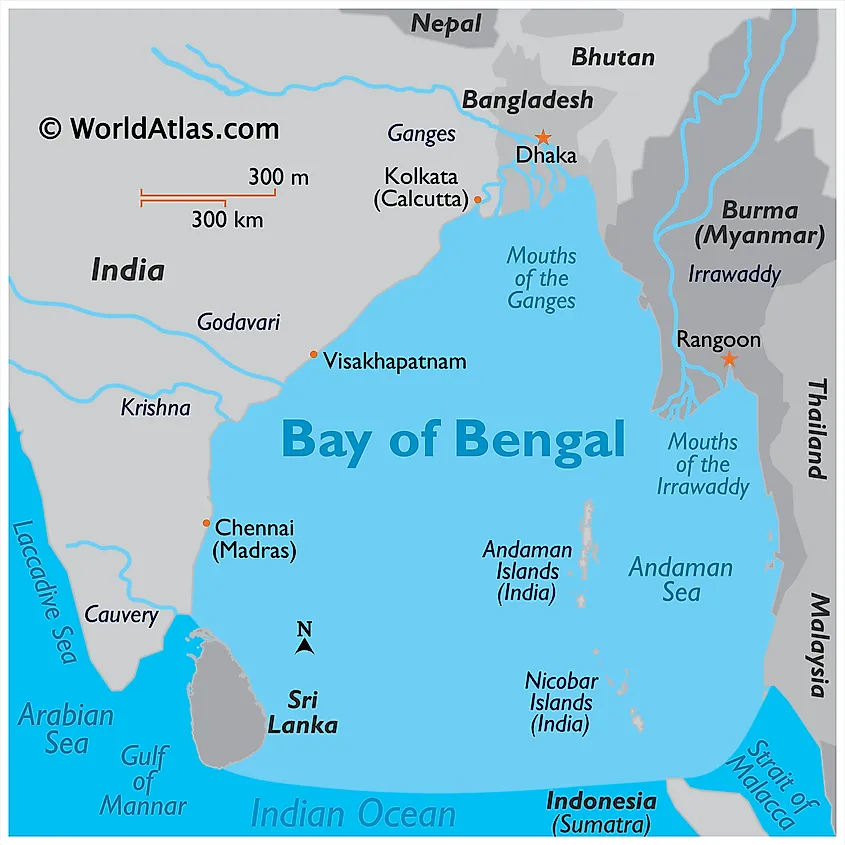Israel´┐Żs´┐Żlebensraum´┐Żmaster plan for Gaza, borrowed from the Nazi´┐Żs depopulation of Jewish´┐Żghettos, is clear. Destroy infrastrutrue, medical facilities and sanitation, including access to clean water. Block shipments of food and fuel. Unleash indiscriminate industrial violence to kill and wound hundreds a day. Let starvation ´┐Ż the U.N.´┐Żestimates´┐Żthat more than half a million people are already starving ´┐Ż and epidemics of infectious diseases, along with the daily massacres and the displacement of Palestinians from their homes, turn Gaza into a´┐Żmortuary. The Palestinians are being´┐Żforced´┐Żto choose between death from bombs, disease, exposure or starvation or being driven from their homeland.
There will soon reach a point where death will be so ubiquitous that deportation ´┐Ż for those who want to live ´┐Ż will be the only option.
Danny Danon, Israel´┐Żs former Ambassador to the U.N. and a close ally of Prime Minister Benjamin Netanyahu, told Israel´┐Żs Kan Bet radio that he has been contacted by ´┐Żcountries in Latin America and Africa that are willing to absorb refugees from the Gaza Strip.´┐Ż ´┐ŻWe have to make it easier for Gazans to leave for other countries,´┐Ż he said. ´┐ŻI´┐Żm talking about voluntary migration by Palestinians who want to leave.´┐Ż
The problem for now ´┐Żis countries that are willing to absorb them, and we´┐Żre working on this,´┐Ż Netanyahu´┐Żtold´┐ŻLikud Knesset members.
In the Warsaw Ghetto, the Germans handed out three kilograms of bread and one kilogram of marmalade to anyone who ´┐Żvoluntarily´┐Ż registered for deportation. ´┐ŻThere were times when hundreds of people had to wait in line for several hours to be ´┐Żdeported,´┐Ż´┐Ż Marek´┐ŻEdelman, one of the commanders of the Warsaw Ghetto uprising, writes in ´┐ŻThe Ghetto Fights.´┐Ż ´┐ŻThe number of people anxious to obtain three kilograms of bread was such that the transports, now leaving twice daily with 12,000 people, could not accommodate them all.´┐Ż
This is the plan. No one, especially the Biden administration, intends to stop it.
The most disturbing lesson I learned while covering armed conflicts for two decades is that we all have the capacity, with little prodding, to become willing executioners. The line between the victim and the victimizer is razor thin. The dark lusts of racial and ethnic supremacy, of vengeance and hate, of the eradication of those we condemn as embodying evil, are poisons that are not circumscribed by race, nationality, ethnicity or religion. We can all become Nazis. It takes very little. And if we do not stand in eternal vigilance over evil ´┐Ż our evil ´┐Ż we become, like those carrying out the mass killing in Gaza, monsters.
The cries of those expiring under the rubble in Gaza are the cries of the boys and men executed by the Bosnian Serbs at Srebrenica, the over 1.5 million Cambodians killed by the Khmer Rouge, the thousands of Tutsi families burned alive in´┐Żchurches´┐Żand the tens of thousands of Jews executed by the´┐ŻEinsatzgruppen´┐Żat´┐ŻBabi Yar´┐Żin Ukraine. The Holocaust is not an historical relic. It lives, lurking in the shadows, waiting to ignite its vicious contagion.
We were warned.´┐ŻRaul Hilberg.´┐ŻPrimo Levi.´┐ŻBruno Bettelheim.´┐ŻHannah Arendt.´┐ŻAleksandr Solzhenitsyn. They understood the dark recesses of the human spirit. But this truth is bitter and hard to confront. We prefer the myth. We prefer to see in our own kind, our own race, our own ethnicity, our own nation, our own religion, superior virtues. We prefer to sanctify our hatred. Some of those who bore witness to this awful truth, including Levi, Bettelheim,´┐ŻJean Am´┐Żry, the author of ´┐ŻAt the Mind´┐Żs Limits: Contemplations by a Survivor on Auschwitz and Its Realities,´┐Ż and Tadeusz Borowski, who wrote ´┐ŻThis Way for the Gas, Ladies and Gentlemen,´┐Ż committed suicide. The German playwright and revolutionary´┐ŻErnst Toller, unable to rouse an indifferent world to assist victims and refugees from the Spanish Civil War, hanged himself in 1939 in a room at the Mayflower Hotel in New York City. On his hotel desk were photos of dead Spanish children.
´┐ŻMost people have no imagination,´┐Ż Toller writes. ´┐ŻIf they could imagine the sufferings of others, they would not make them suffer so. What separated a German mother from a French mother? Slogans which deafened us so that we could not hear the truth.´┐Ż
Primo Levi railed against the false, morally uplifting narrative of the Holocaust that culminates in the creation of the state of Israel ´┐Ż a narrative embraced by the Holocaust Museum in Washington D.C. The contemporary history of the Third Reich, he writes, could be ´┐Żreread as a war against memory, an Orwellian falsification of memory, falsification of reality, negation of reality.´┐Ż He wonders if ´┐Żwe who have returned´┐Ż have ´┐Żbeen able to understand and make others understand our experience.´┐Ż
Levi saw us reflected in Chaim Rumkowski, the Nazi collaborator and tyrannical leader of the´┐Ż?´┐Żd? Ghetto.´┐ŻRumkowski sold out his fellow Jews for privilege and power, although he was sent to Auschwitz on the final transport where Jewish´┐ŻSonderkommando´┐Ż´┐Ż´┐Ż prisoners forced to help herd victims into the gas chambers and dispose of their bodies´┐Ż ´┐Ż in an act of vengeance´┐Żreportedly´┐Żbeat him to death outside a crematorium.
´┐ŻWe are all mirrored in Rumkowski,´┐Ż Levi reminds us. ´┐ŻHis ambiguity is ours, it is our second nature, we hybrids molded from clay and spirit. His fever is ours, the fever of Western civilization, that ´┐Żdescends into hell with trumpets and drums,´┐Ż and its miserable adornments are the distorting image of our symbols of social prestige.´┐Ż We, like Rumkowski, ´┐Żare so dazzled by power and prestige as to forget our essential fragility. Willingly or not we come to terms with power, forgetting that we are all in the ghetto, that the ghetto is walled in, that outside the ghetto reign the lords of death, and that close by the train is waiting.´┐Ż
Levi insists that the camps ´┐Żcould not be reduced to the two blocks of victims and persecutors.´┐Ż He argues, ´┐ŻIt is naive, absurd, and historically false to believe that an infernal system such as National Socialism sanctifies its victims; on the contrary; it degrades them, it makes them resemble itself.´┐Ż He chronicles what he called the ´┐Żgray zone´┐Ż between corruption and collaboration. The world, he writes, is not black and white, ´┐Żbut a vast zone of gray consciences that stands between the great men of evil and the pure victims.´┐Ż We all inhabit this gray zone. We all can be induced to become part of the apparatus of death for trivial reasons and paltry rewards. This is the terrifying truth of the Holocaust.
It is hard not to be cynical about the plethora of university courses about the Holocaust given the censorship and banning of groups such as´┐ŻStudents for Justice in Palestine´┐Żand´┐ŻJewish Voices for Peace, imposed by university administrations. What is the point of studying the Holocaust if not to understand its fundamental lesson ´┐Ż when you have the capacity to stop genocide and you do not, you are culpable? It is hard not to be cynical about the ´┐Żhumanitarian interventionists´┐Ż ´┐Ż Barack Obama, Tony Blair, Hillary Clinton, Joe Biden, Samantha Power´┐Ż ´┐Ż who talk in sanctimonious rhymes about the ´┐ŻResponsibility to Protect´┐Ż but are silent about war crimes when speaking out would threaten their status and careers. None of the ´┐Żhumanitarian interventions´┐Ż they championed, from Bosnia to Libya, come close to replicating the´┐Żsuffering and slaughter´┐Żin Gaza. But there is a cost to defending Palestinians, a cost they do not intend to pay. There is nothing moral about denouncing slavery, the Holocaust or dictatorial regimes that oppose the United States. All it means is you champion the dominant narrative.
The moral universe has been turned upside down. Those who oppose´┐Żgenocide´┐Żare accused of advocating it. Those who carry out genocide are said to have the right to ´┐Żdefend´┐Ż themselves. Vetoing ceasefires and providing 2,000-pound bombs to Israel that throw out metal fragments for thousands of feet is the road to peace. Refusing to negotiate with Hamas will free the hostages. Bombing hospitals, schools, mosques, churches, ambulances and refugee camps, along with´┐Żkilling´┐Żthree former Israeli hostages, stripped to the waist, waving an improvised white flag and calling out for help in Hebrew, are routine acts of war. Killing´┐Żover´┐Ż21,300 people, including´┐Żmore than´┐Ż7,700 children, injuring over 55,000 and rendering nearly all of the 2.3 million people in Gaza´┐Żhomeless, is a way to ´┐Żderadicalize´┐Ż Palestinians. None of this makes sense, as protesters around the world realize.
A new world is being born. It is a world where the old rules, more often honored in the breach than the observance, no longer matter. It is a world where vast bureaucratic structures and technologically advanced systems carry out in public view vast killing projects. The industrialized nations, weakened, fearful of global chaos, are sending an ominous message to the Global South and anyone who might think of revolt ´┐Ż´┐Ż we will kill you without restraint.
One day, we will all be Palestinians.´┐Ż
´┐ŻI fear that we live in a world in which war and racism are ubiquitous, in which the powers of government mobilization and legitimization are powerful and increasing, in which a sense of personal responsibility is increasingly attenuated by specialization and bureaucratization, and in which the peer group exerts tremendous pressures on behavior and sets moral norms,´┐Ż Christopher R. Browning writes in´┐ŻOrdinary Men, about a German reserve police battalion in World War Two that was ultimately responsible for the murder of 83,000 Jews. ´┐ŻIn such a world, I fear, modern governments that wish to commit mass murder will seldom fail in their efforts for being unable to induce ´┐Żordinary men´┐Ż to become their ´┐Żwilling executioners.´┐Ż´┐Ż
Evil is protean. It mutates. It finds new forms and new expressions. Germany orchestrated the murder of six million Jews, as well as´┐Żover´┐Żsix million Gypsies, Poles, homosexuals, communists, Jehovah´┐Żs Witnesses, Freemasons, artists, journalists, Soviet prisoners of war, people with physical and intellectual disabilities and political opponents. It immediately set out after the war to expiate itself for its crimes. It deftly´┐Żtransferred´┐Żits racism and demonization to Muslims, with racial supremacy remaining firmly rooted in the German psyche. At the same time, Germany and the U.S.´┐Żrehabilitated´┐Żthousands of former Nazis, especially from the intelligence services and the scientific community, and did little to prosecute those who directed Nazi war crimes. Germany today is Israel´┐Żs´┐Żsecond largest´┐Żarms supplier following the U.S.
The supposed campaign against anti-Semitism, interpreted as any statement that is critical of the State of Israel or denounces the genocide, is in fact the championing of White Power. It is why the German state, which has effectively´┐Żcriminalized´┐Żsupport for the Palestinians, and the most retrograde white supremists in the United States, justify the carnage. Germany´┐Żs long relationship with Israel, including paying over $90 billion since 1945 in´┐Żreparations´┐Żto Holocaust survivors and their heirs, is´┐Żnot about´┐Żatonement, as the Israeli historian Ilan Papp´┐Żwrites, but blackmail.
´┐ŻThe argument for a Jewish state as compensation for the Holocaust was a powerful argument, so powerful that nobody listened to the outright rejection of the U.N. solution by the overwhelming majority of the people of Palestine,´┐Ż Papp´┐Ż writes. ´┐ŻWhat comes out clearly is a European wish to atone. The basic and natural rights of the Palestinians should be sidelined, dwarfed and forgotten altogether for the sake of the forgiveness that Europe was seeking from the newly formed Jewish state. It was much easier to rectify the Nazi evil vis-´┐Ż -vis a Zionist movement than facing the Jews of the world in general. It was less complex and, more importantly, it did not involve facing the victims of the Holocaust themselves, but rather a state that claimed to represent them. The price for this more convenient atonement was robbing the Palestinians of every basic and natural right they had and allowing the Zionist movement to ethnically cleanse them without fear of any rebuke or condemnation.´┐Ż
The Holocaust was weaponized from almost the moment Israel was founded. It was bastardized to serve the apartheid state. If we forget the lessons of the Holocaust, we forget who we are and what we are capable of becoming. We seek our moral worth in the past, rather than the present. We condemn others, including the Palestinians, to an endless cycle of slaughter. We become the evil we abhor. We consecrate the horror.
Chris Hedges´┐Żis a Pulitzer Prize-winning journalist who was a foreign correspondent for fifteen years for The New York Times, where he served as the Middle East Bureau Chief and Balkan Bureau Chief for the paper. He is the host of the Emmy Award-nominated RT America show On Contact. His most recent book is ´┐ŻAmerica: The Farewell Tour´┐Ż (2019).
Originally published on´┐ŻChris Hedges Report













